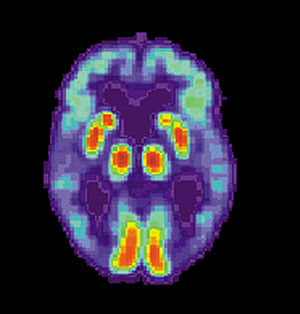Okay, so granddad and grandmother may not be ready for an online game of Modern Warfare or a 30 minute spinning class, but some computer time and exercise may do them some good.
A new study published in the May issue of Mayo Clinic Proceedings, says that moderate exercise and mental stimulation through computer use may help reduce the risk of age-related memory loss. While other studies have found that one or the other helps lower the risk of memory loss, this study encourages both activities.
The recommendations are based on the activities of more than 920 senior citizens in Olmsted County, Minn., between the ages of 70 to 93 who answered questionnaires about their computer use and exercise over the prior year. Researchers found signs of mild cognitive impairment in nearly 38 percent of the elderly participants who didn’t exercise or use a computer. That compares with just over 18 percent of those who did some moderate exercises and also used a computer.
In case you’re wondering if there is a difference between memory loss and mild cognitive impairment apparently there is. Mild cognitive impairment is the stage between normal age-related memory loss and early dementia or Alzheimer’s disease.
The study’s researchers singled out computer use as a mentally stimulating activity due to its popularity, but it’s not the only or maybe even the best way to promote mental stimulation among seniors. Research has shown that reading, playing games, listening to music and taking part in artistic activities help mental simulation. I suspect that talking on the phone for hours with friends has helped keep my mother’s mind sharp. She is blind and talking on the phone allows her to stay connected with people and gives her something to do. (Thank goodness for unlimited long distance calling plans). Her memory is so good she recently reminded me, in detail, of an incident that happened more than 10 years ago.
My mother also exercises regularly on the treadmill at her adult day center and sometimes walks holding onto a shopping cart when we shop. She’s also gotten some exercise by holding onto the inside of our kitchen sink and doing a few sets of side, front, and back leg raises and swats. More active seniors may prefer brisk walks, hikes, strength training, swimming, and yoga.
It’s important to note that although the study found an association between moderate exercise and computer use and better memory function, it didn’t claim to prove a cause-and-effect relationship so there’s no guarantee that more computer time and exercise will help prevent elderly people from getting dementia or Alzheimer’s disease.
But given the impact of these diseases on the lives of senior citizens and their families, isn’t it worth a try?
Related articles



Leave a Reply